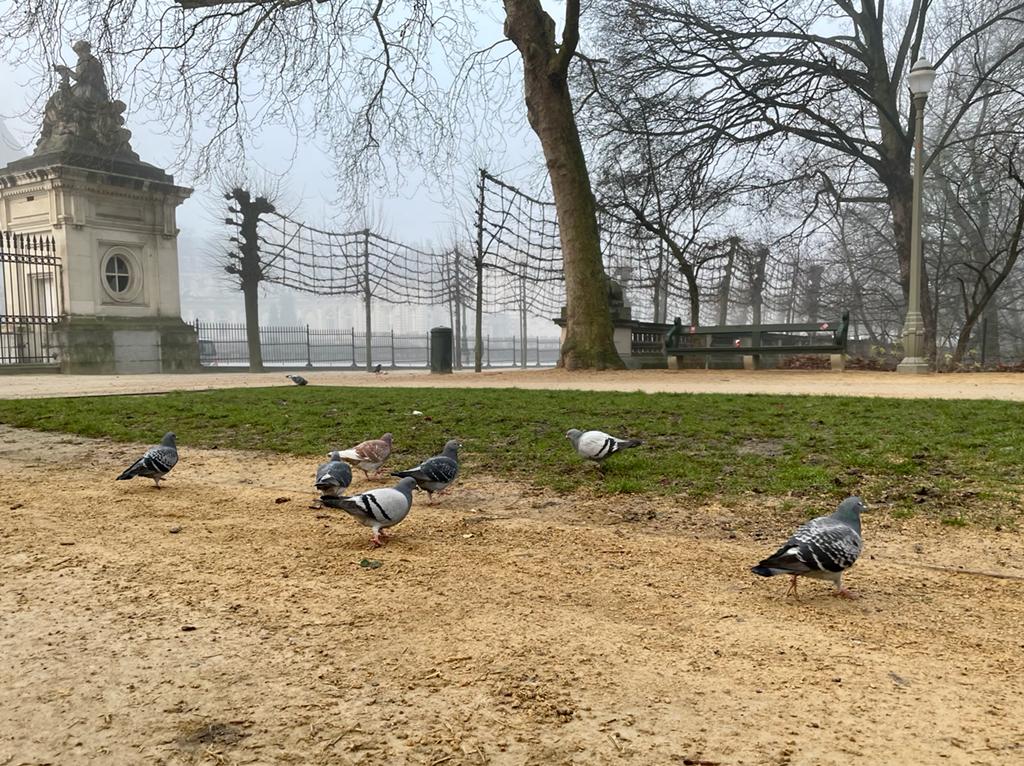Brussels is massively dispensing contraceptive corn pellets to pigeons in the region in an effort to humanely reduce the ever-growing population.
Pigeons are a nuisance for many reasons, but their droppings, aside from being an eyesore, also cause material damage. The highly acidic excrement can erode materials such as marble, limestone and concrete, according to reports from Bruzz.
And the cost of cleaning excrements is no less eye-watering, costing between €16 and €23 per pigeon every year.
The region has tried various methods to control the pigeon population for decades but is now stepping up measures. Since the start of last month, the catching and killing of pigeons – a tactic used in the past – was banned. Another control method, the surgical sterilisation of pigeons by the City of Brussels was previously banned on grounds of cruelty.
The City of Brussels is now turning to the R-12 pigeon pill: a corn pellet coated with a medicine that helps birds against parasites as well as with a contraceptive component. It is already used in Laeken and Ixelles, as well as Leuven.
At Square Clémentine, where the first seed dispenser was installed in 2019, the population dropped by 30% from 180 pigeons in February 2019 to 130 pigeons one year later. By July 2020, it had halved.
Targeted action
This method is already used in other European cities, such as Barcelona. To distribute the pellets, the municipality works together with Limburg-based Vets for City Pigeons.
"We work with maize pellets treated with R12 or nicarbazine," the company's vet Pieter Colla told Bruzz. "Nicarbazine is actually a product against intestinal parasites. But it has the side effect of making pigeons infertile because it prevents fruit from developing in the eggs." He stressed that the pellets have no harmful effect on the environment, as they aren't real hormonal products.
Related News
- Catching and euthanising pigeons will no longer be allowed in Brussels
- Pigeon population in Brussels reduced by 30% following contraceptive experiment
- Leuven tackles pigeon problem using contraceptive pill
He added that this corn is only given to dominant pigeons, about 15% of the local colony, as they are the ones engaged in reproduction. This is done via automatic dispensers which switch on one hour after sunrise every day. The pellets are then dispensed to dominant pigeons that have been conditioned to eat them.
The effect of the pill disappears in around six days, after which the animal can reproduce, meaning the dispensers have to continually be refilled. If uncontrolled, city pigeons can have up to 12 young per year.
In the coming few weeks and months, more dispensers will be placed across the city, mainly in places where the city received the most complaints about the animals.

